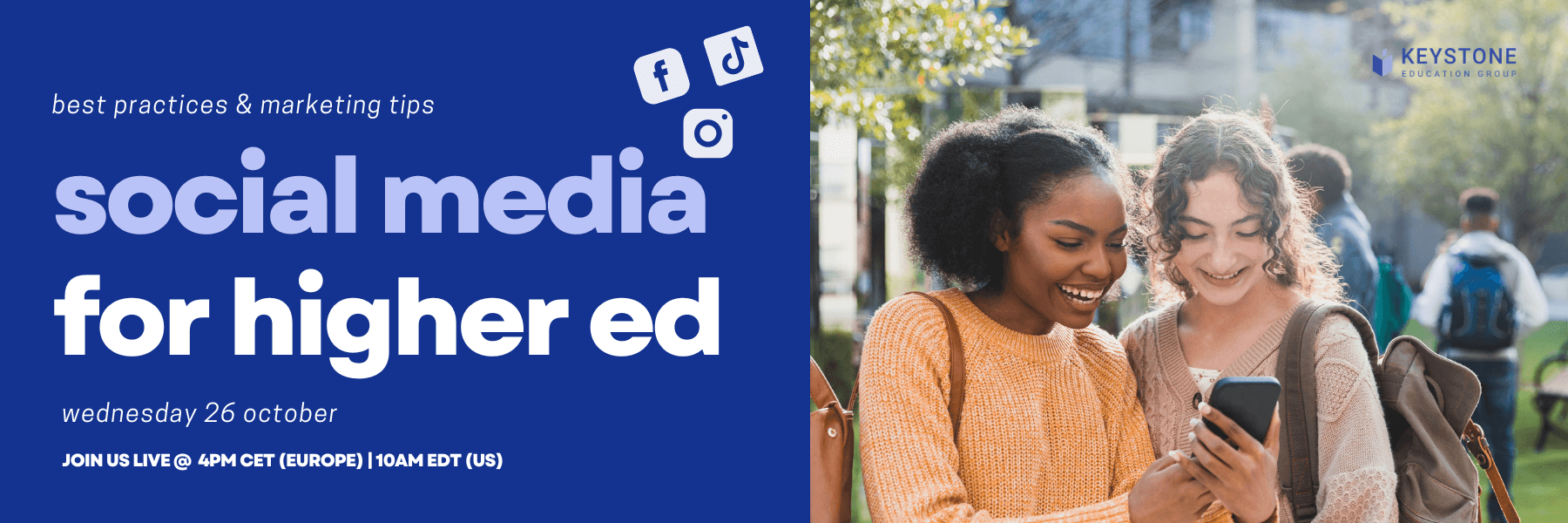Table of content
Looking for more ways to grow?
Our Higher Ed Marketing Services can help get your institution in front of actively searching students.
Subscribe to get the
latest news and updates
07.09.2022
10 minutes
by Sara Anderson
Communicating with Generation Z versus Generation Alpha
Generation Z and Generation Alpha will probably never know what a fax machine does or have a landline in their homes. A world without smartphones sounds prehistoric.
Both generations are tech-savvy but have glaring differences. To better market to them and communicate with them we first need to understand the key differences.
First, you need to understand their demographics to leverage your messaging with personalization, nurture the student journey, and help you connect to our world’s future.
Who is Generation Z?
Gen Z, also known as “zoomers,” is the group born between 1997 and 2015. According to the Pew Research Center, they’re on track to be the most educated and the most racially diverse generation in U.S. history.
They are also digital natives who have little or no memory of the world before smartphones. In fact, 99% of them own or have access to a smartphone.
Who is Generation Alpha?
Gen Alpha - or ‘screenagers’ - is the generation born in or after 2010. Right now, most are under 12. But soon, in just four years, the oldest of them will be entering college, and within those four years, they will outnumber the Baby Boomers.
According to McCrindle’s latest report, by 2025 this generation will have more than two billion — the largest generation in history.
They will be the most digitally savvy generation ever. It's no wonder: screens were placed in front of them instead of pacifiers.
How do their differences impact how to communicate with them?
Similarities:
1. Personalization
Gen Z still gets excited when an email pops up with their name in the subject line. They probably forgot which college knew they were a student-athlete or interested in Greek life. Although your CRM knows, Gen Z is blasé about this. It's not a total shock for Gen Z to get personalized emails, SMS, and direct mail, but it's still a nice surprise.
However, they expect more personal contact with a college (either in-person, email, or by phone).
Generation Alpha takes it a step further. They have been shaped in an era of customization and personalization – especially when it comes to technology.
They have everything they need at their fingertips and are used to devices greeting them by name and memorizing their preferences.
While for Gen Z, the personal touch may be a ‘nice to have’, for Gen Alpha, personal touches are a given.
2. World awareness
Sustainability and climate change are world issues that Gen Z pays attention to. This generation is often overwhelmed with complex political and social problems.
Generation Alpha is expected to be growing up faster because of their heightened awareness of the world around them. Unlike the generation before them, Gen Alpha is more hopeful, according to Alida.
They have a window to see different perspectives across the globe and can see innovative ideas take shape in real-time. Gen Alpha feels empowered to act because technology allows them to.
What does this mean for you? Gez Z wants to know how you offer a practical, real-world education. What hands-on experience will they have?
Gen Alpha wants to know how their education will make a difference in the world. What clubs and organizations will help them do this? Are your programs focused on equity and inclusion?
3. Parental influence
Gen Z is more likely to have a college-educated parent, with 44% of those ages 7-17 living with a parent with a bachelor's degree or more education. They may be more tech-savvy, but their parents tend to have more experience in financial decisions, making the college decision one they both own.
Gen Alpha’s college choices can also be shaped by the choices made for them by their Millennial parents. According to McCrindle, their formal education has never been equaled in the history of the world, with a predicted one in two Gen Alphas obtaining a university degree. Parents play a crucial role from the first touchpoints, and your messaging should not forget them.
4. Individualizm
The best way to communicate with Gen Z is to celebrate the individual - showing prospective students how they can personally fit into your campus. They have already established who they are, so need to know if you are a good fit for them.
To market to them, colleges should publish real images of real students (not stock photos) across social media. Organic content, carousel ads, and, most importantly, videos will get their attention. Testimonial videos are key but need to be genuine.
For Gen Alpha, they are the future and know the impact they will have, so they will want to know how the individual benefits your college can provide to them.
WATCH ON DEMAND WEBINAR:
